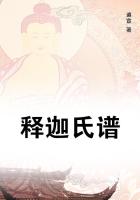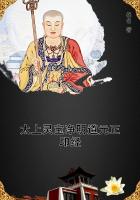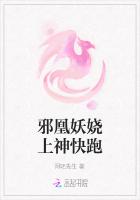Suddenly Tua, in her sleep, heard a voice, and, awaking with a start, saw a man who stood near by, leaning on a thornwood staff and contemplating them. He was a very strange man, apparently of great age, for his long white hair fell down upon his shoulders, and his white beard reached to his middle. Once he must have been very tall, but now he was bent with age, and the bones of his gaunt frame thrust out his ragged garments. His dark eyes also were horny, indeed it seemed as though he could scarcely see with them, for he leaned forward to peer at their faces where they lay. His face was scored by a thousand wrinkles, and almost black with exposure to the sun and wind, but yet of a marvellous tenderness and beauty. Indeed, except that it was far more ancient, and the features were on a larger and a grander scale, it reminded Tua of the face of Pharaoh after he was dead.
"My Father," said Tua, sitting up, for an impulse prompted her to name this wanderer thus, "say whence do you come, and what would you with your servants?""My Daughter," answered the old man in a sweet, grave voice, "I come from the wilderness which is my home. Long have I outlived all those of my generation, yes, and their children also. Therefore the wilderness and the forest that do not change are now my only friends, since they alone knew me when I was young. Be pitiful now to me, for Iam poor, so poor that for three whole days no food has passed my lips.
It was the smell of the meat which you have with you that led me to you. Give me of that meat, Daughter, for I starve.""It is yours, O----" and she paused.
"I am called Kepher."
"Kepher, Kepher!" repeated Tua, for she thought it strange that a beggar-man should be named after that scarab?us insect which among the Egyptians was the symbol of eternity. "Well, take and eat, O Kepher,"she said, and handed him the basket that contained what was left to them of their store.
The beggar took it, and having looked up to heaven as though to ask a blessing on his meal, sat down upon the sand and began to devour the food ravenously.
"Lady," said Asti, "he will eat it all, and then we shall starve in this desert. He is a locust, not a man," she added, as another cake disappeared.
"He is our guest," answered Tua gravely, "let him take what we have to give."For a while Asti was silent, then again she broke out into remonstrance.
"Peace, Nurse," replied Tua, "I have said that he is our guest, and the law of hospitality may not be broken.""Then the law of hospitality will bring us to our deaths," muttered Asti.
"If so, so let it be, Nurse; at least this poor man will be filled, and for the rest, as always, we must trust to Amen our father."Yet as she spoke the words tears gathered in her eyes, for she knew that Asti was right, and now that all the food was gone, on which with care they might have lived for two days or more, soon they would faint, and perish, unless help came to them, which was not likely in that lonesome place. Once, not so long ago, they had starved for lack of sustenance, and it was the thought of that slow pain so soon to be renewed, that brought the water to her eyes.
Meanwhile Kepher, whose appetite for one so ancient was sharp indeed, finished the contents of the basket down to the last date, and handed it back to Tua with a bow, saying:
"I thank you, Daughter; the Queen of Egypt could not have entertained me more royally," and he peered at her with his horny eyes. "I who have been empty for long, am full again, and since I cannot reward you I pray to the gods that they will do so. Beautiful Daughter, may you never know what it is to lack a meal."At this saying Tua could restrain herself no more. A large tear from her eyes fell upon Kepher's rough hand as she answered with a little sob:
"I am glad that you are comforted with meat, but do not mock us, Friend, seeing that we are but lost wanderers who very soon must starve, since now our food is done.""What, Daughter?" asked the old man in an astonished voice, "what? Can I believe that you gave all you had to a beggar of the wilderness, and sat still while he devoured it? And is it for this reason that you weep?""Forgive me, Father, but it is so," answered Tua. "I am ashamed of such weakness, but recently my friend here and I have known hunger, very sore hunger, and the dread of it moves me. Come, Asti, let us be going while our strength remains in us."Kepher looked up at the name, then turned to Tua and said:
"Daughter, your face is fair, and your heart is perfect, since otherwise you would not have dealt with me as you have done. Still, it seems that you lack one thing--undoubting faith in the goodness of the gods. Though, surely," he added in a slow voice, "those who have passed yonder lion-haunted forest without hurt should not lack faith.
Say, now, how came you there?"
"We are ladies of Egypt," interrupted Asti, "or at least this maiden is, for I am but her old nurse. Man-stealing pirates of Ph?nicia seized us while we wandered on the shores of the Nile, and brought us hither in their ship, by what way we do not know. At length they put into yonder river for water, and we fled at night. We are escaped slaves, no more.""Ah!" said Kepher, "those pirates must mourn their loss. I almost wonder that they did not follow you. Indeed, I thought that you might be other folk, for, strangely enough, as I slept in the sand last night, a certain spirit from the Under-world visited me in my dreams, and told me to search for one Asti and another lady who was with her--I cannot remember the name of that lady. But I do remember the name of the spirit, for he told it to me; it was Mermes."Now Asti gave a little cry, and, springing up, searched Kepher's face with her eyes, nor did he shrink from her gaze.















